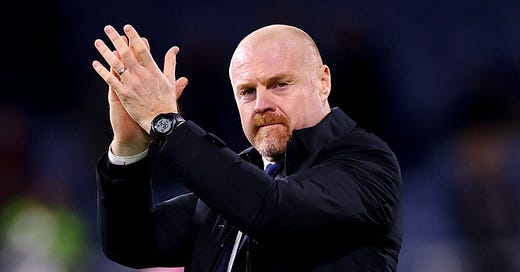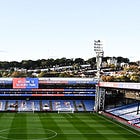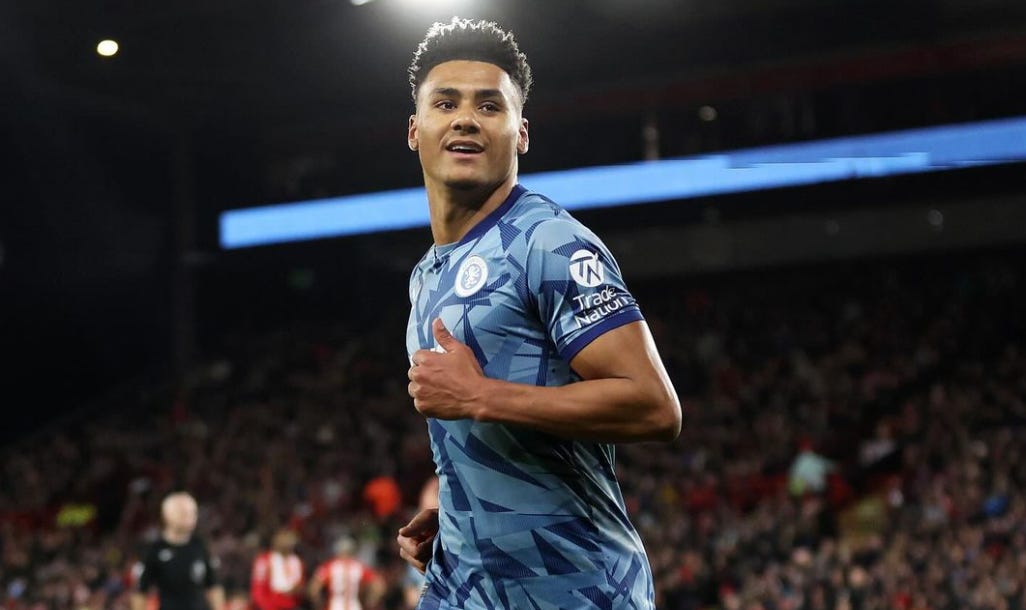Monday Musing: This Is How It Feels
In aiming to avoid suffering Everton's fate, Premier League teams have had to become them.
As Richarlison curled in a sublime finish to put Tottenham 2-1 up against Everton on Saturday, his former club saw what they were missing out on.
Sold to Spurs at the end of June 2022, in the (apparently misguided) hope that the timing of the £60million sale would enable them to avoid a breach of the Premier League’s Profit and Sustainability Regulations (PSR), Richarlison struggled in his first season at Tottenham.
Injuries and his efforts at the World Cup, coming on the back of carrying Everton to safety, seemed to wear him down. So much so, there was talk that Spurs were open to letting him go last summer. And the mere thought that Everton, who had helped Richarlison develop from a rough-around-the-edges talent to a fully fledged Brazil regular, might have been able to demand more than the £60m they received for him, was shrugged off as laughable.
But what’s that old saying? Something about form being permanent?
After his double at Goodison Park — with Everton eventually fighting back to draw 2-2 — Richarlison has scored nine league goals in his last eight appearances. The 26-year-old, who found the net just once in the top flight last term, is already on 10 Premier League goals in total.
Richarlison is a player Everton had to sell as they looked to cut their cloth accordingly under PSR pressure. Anthony Gordon was the player the Toffees had to sell in January of 2023, hardly six months later, with nobody brought in to bolster Sean Dyche’s team with those funds. Gordon has directly contributed to a team-leading 12 Premier League goals for Newcastle this season (seven goals, five assists).

Last summer, Everton’s Director of Football Kevin Thelwell had to structure deals in a way that meant the Toffees did not pay any upfront cash for Beto (a £21.5m signing from Udinese) or Youssef Chermiti (£15m from Sporting CP). Jack Harrison came on loan from Leeds United, but with no fee involved, while Ashley Young signed on a free. Only for Arnuat Danjuma did Everton spend any cash, paying out a £3m loan fee.
At the start of January, Thelwell even thought it necessary to write openly to Evertonians to inform them that the club would almost certainly not be doing any business unless there were significant outgoings
That followed on from a similar story last season.
Everton’s transfer business summer 2022
Amadou Onana (~£30m)
Dwight McNeil (~£15m)
Neal Maupay (~£10m)
James Garner (£9m)
Idrissa Gueye (£2m)
Conor Coady (loan)
Ruben Vinagre (loan)
James Tarkowski (free)
All in all, five permanent signings cost only £6m more, approximately, than the fee Everton received for one player in Richarlison.
Then, throw in that all of those deals came with initially small down payments. Everton paid between £3m and £4m for McNeil upfront, and around £8m for Onana, for example. This is without considering that the costs of incoming transfers can be amortised over the length of the players’ contract for PSR purposes, but outgoing sales can be categorised as full payments.
As well as selling Gordon in the same financial year for £45m, Everton also pushed through the £25m sale of Moise Kean to Juventus, and youngsters like Ellis Simms and Ishe Samuels-Smith left early on in the summer.
Going back to 2021-22, the year Everton have been punished for a breach of the PSR, the Toffees spent just £1.5m in the summer before splashing out £28m on Vitaliy Mykolenko and Nathan Patterson. The sale of Lucas Digne, in January 2022, covered the vast majority of those costs.
If you tally up the spending (net or gross) of Premier League sides across the past three seasons, Everton are regularly towards the bottom.
Not that any of that has mattered. Everton currently sit in the bottom three because they were handed the harshest points punishment in Premier League history for a breach of PSR. Their appeal was heard last week, and a decision will be confirmed at some stage this month.
Then, of course, there is the small matter of a second PSR charge — the Toffees, along with Nottingham Forest, are accused of breaching the rules again in the 2022-23 financial year, despite their best efforts.
The hot-shot barrister hired to lead both the appeal — and a defence against the second charge should one be required — ‘Super Silk’ Laurence Rabinowitz, was in attendance at Goodison Park for the Spurs game. A hefty portion of any transfer budget might well have been spent on his services.
This is not to re-tread over old ground, but there’s a certain irony that, in aiming to avoid suffering the same fate that Everton have already suffered — and that Forest may well suffer — the vast majority of Premier League teams decided to shut up shop in the January transfer window and, in some aspects, replicated how Everton have been trying to operate for several years now.
Week after week, as reporters desperately attempted to eke out some information to manufacture some sort of narrative that there was to be some explosion of activity late in the window, Premier League managers repeated the mantra that unless players left, then there would not be many incoming.
Some clubs made exceptions. Crystal Palace, prudently run from a cash perspective at least, made permanent moves for Adam Wharton and Daniel Munoz; West Ham spent big on Kalvin Phillips’ loan deal from Manchester City; Forest seemingly did not care that they faced a charge, and elected to bolster their squad with Giovanni Reyna, Matz Sels and Rodrigo Ribeiro, though to give them their due, two of those were loan moves.
All told, Premier League teams spent around £100m last month. That is the lowest spend in a non-COVID season in a January window since 2011-12. It was £715m lower than January 2023.
Admittedly, Chelsea were responsible for much of that huge spending 12 months ago. The Blues are under investigation — yes, still — from the FA and the Premier League, and there is speculation they will fall foul of PSR should they not sell big before the end of June. They slipped into the bottom half with a 4-2 home loss to Wolves on Sunday, so it’s not like their European prospects look particularly great either.
And let’s get one thing straight too. It’s not a bad thing that Premier League teams are spending less, though a £715m drop seems like going from one extreme to the other.
The late Bill Kenwright, who more than played his part in Everton’s mess, once claimed a senior executive at another club explained that he would sometimes ask himself “What would the Everton board do because they always get it right?”.
While that is laughable now, looking back at the years of chaos under Farhad Moshiri, the irony is — it’s probably now ringing true again to some extent.
Newcastle, the benefactors of Gordon’s desire to leave and Everton’s requirement to sell last January, and backed by the might of Saudi Arabia’s Public Investment Fund, were unable to bring in anyone without selling a player first. A club with, almost quite literally, an endless pot of funding and one that has just enjoyed a first taste of Champions League football in two decades, essentially hasn’t got a pot to piss in when it comes to PSR. Indeed, should they not qualify for Europe this term, then might they have to cash in on a Bruno Guimaraes or Alexander Isak for less than they may have bargained for before the end of the financial year?
Manchester United, one of the world’s richest clubs, even if they continue to rack up huge debts under the ownership of the Glazer family, were unable to bolster Erik ten Hag’s squad, with the Dutchman saying he will have to get “creative” as he looks to solve his striker issue.
Aston Villa, flying high and dreaming of Champions League qualification, are said to be close to the bone. They too might have to pull an Everton in the summer — Ollie Watkins or Douglas Luiz heading for pastures new if Unai Emery wants to do much business.
Brighton, the team hailed as using the perfect, sustainable model, might well find matters more difficult if there are no longer teams willing to pay way over the odds for their talent.
PSR is required in some form, but right now it is simultaneously a cap on ambition and a tool that enables clubs to be punished twice for what could well be a single offence.
Until that changes, then welcome to Everton’s world. This is how it feels.
By Patric Ridge
Patric is a data journalist at Stats Perform and is a regular contributor to Toffee TV and Opta Analyst, while he has attended high-profile events including the UEFA Super Cup and 2022 FIFA World Cup.
(Follow: @PatricRidge)









